Training and
Operations
Specialised training in wildfires: practical learning for safer suppression.
The second stage of the EGIF program
The EGIF program is an example of a wildfire training framework to empower organisations, train professionals, exchange knowledge and collaborate with experts from different organizations and countries.
In 2022, during the first stage of the EGIF program, emphasis was placed on the organization and management of an emergency, the analysis for making operational decisions, the use of technical fire and the development of operational plans for emergencies.
Afterwards, a series of needs were detected that have been worked on in a second stage, in 2023. Among the needs detected and addressed were the improvement of predictive and analytical capabilities for decision-making; advice on the design of operations based on available resources; improved coordination and organization of large forest fire emergencies; advice for the design of an Air Operations Coordination program and implementation of a human factor program.
EGIF is a technical assistance program whose objective is to design a knowledge management system in which experiences in forest fires become elements of experience and training within the organization itself, and thus, in this case, empower and grow CONAF. Its specificity lies in the fact that it takes place in a real fire scenario and has the participation of experts from different international firefighting services.
Other training
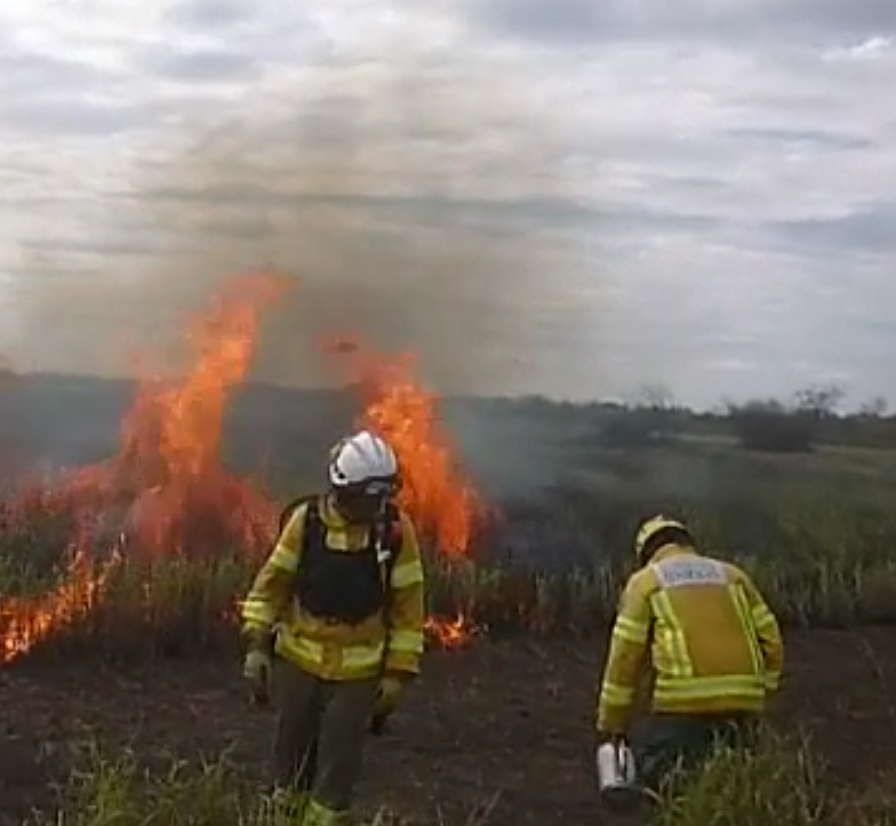
Workshop for the development of integral wildfire management operations
Date: June 7, 2023
Location: online
Entity: Ministerio del Ambiente, Agua y Transición Ecológica (MAATE), Ecuador
Workshop organized by the PASF (Amazonia Sin Fuego Program) of the MAATE (Ministerio de Ambiente, Agua y Transición Ecológica) of the government of Ecuador. We were there as instructors to publicize the application of IFM (Integral Fire Management) in other realities (Spain-Pau Costa Foundation and USA-US Forest) since Ecuador was immersed in the drafting of the National Strategy on Integrated Fire Management.
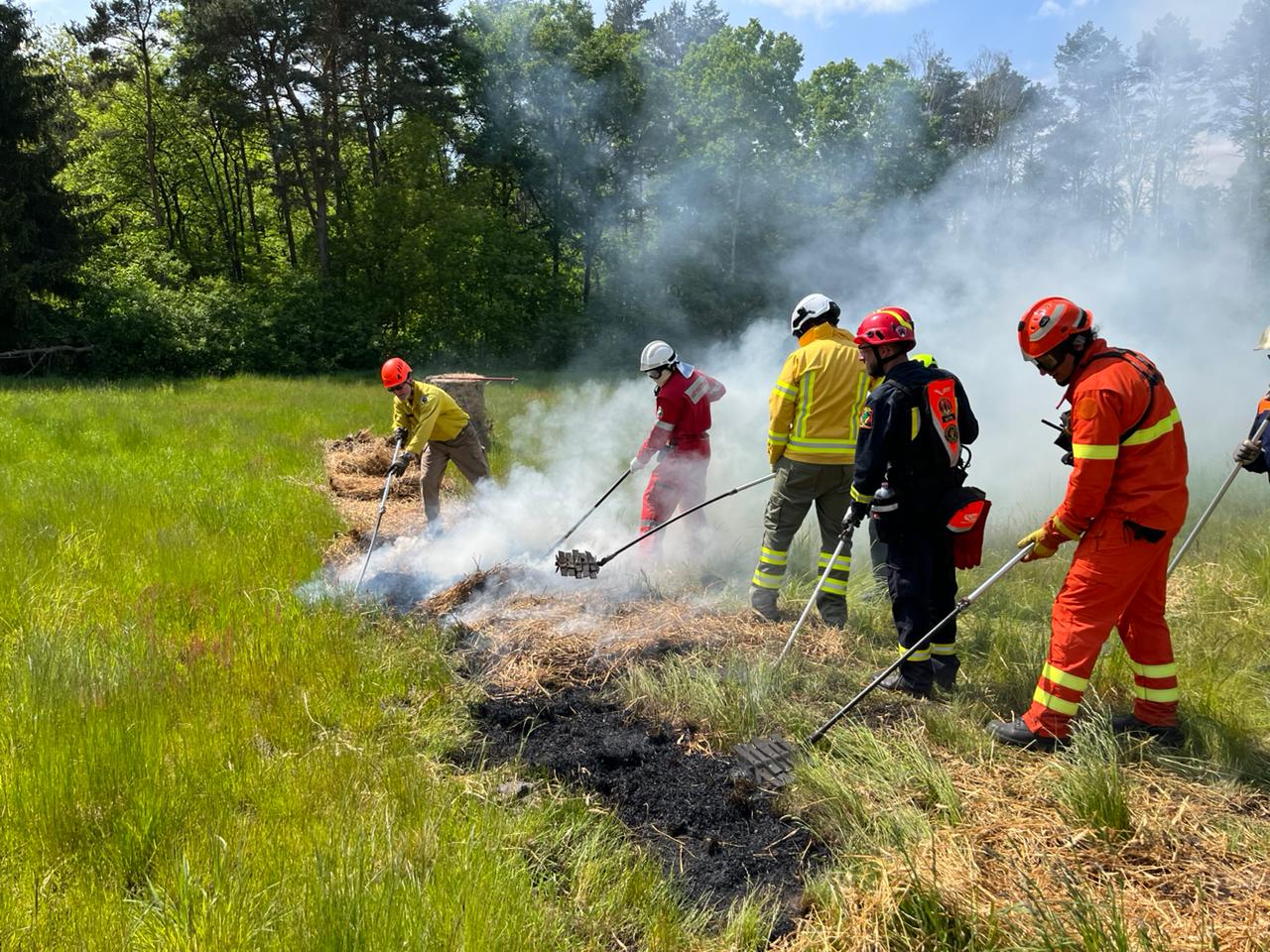
Forest Camp on Wildfires
We participated as instructors in one of the workshops that were carried out in this activity aimed at firefighters. The Forest Camp is based on practical exercises that participants must carry out in different stations that propose activities related to the prevention and extinction of forest fires.

The use of fire as a land management tool: fires, pyroecology and prescribed fire burning
We participated in this training proposal with a webinar on prescribed and technical burning, and the use of legislative tools as an opportunity to share interests in the prevention of wildfires.
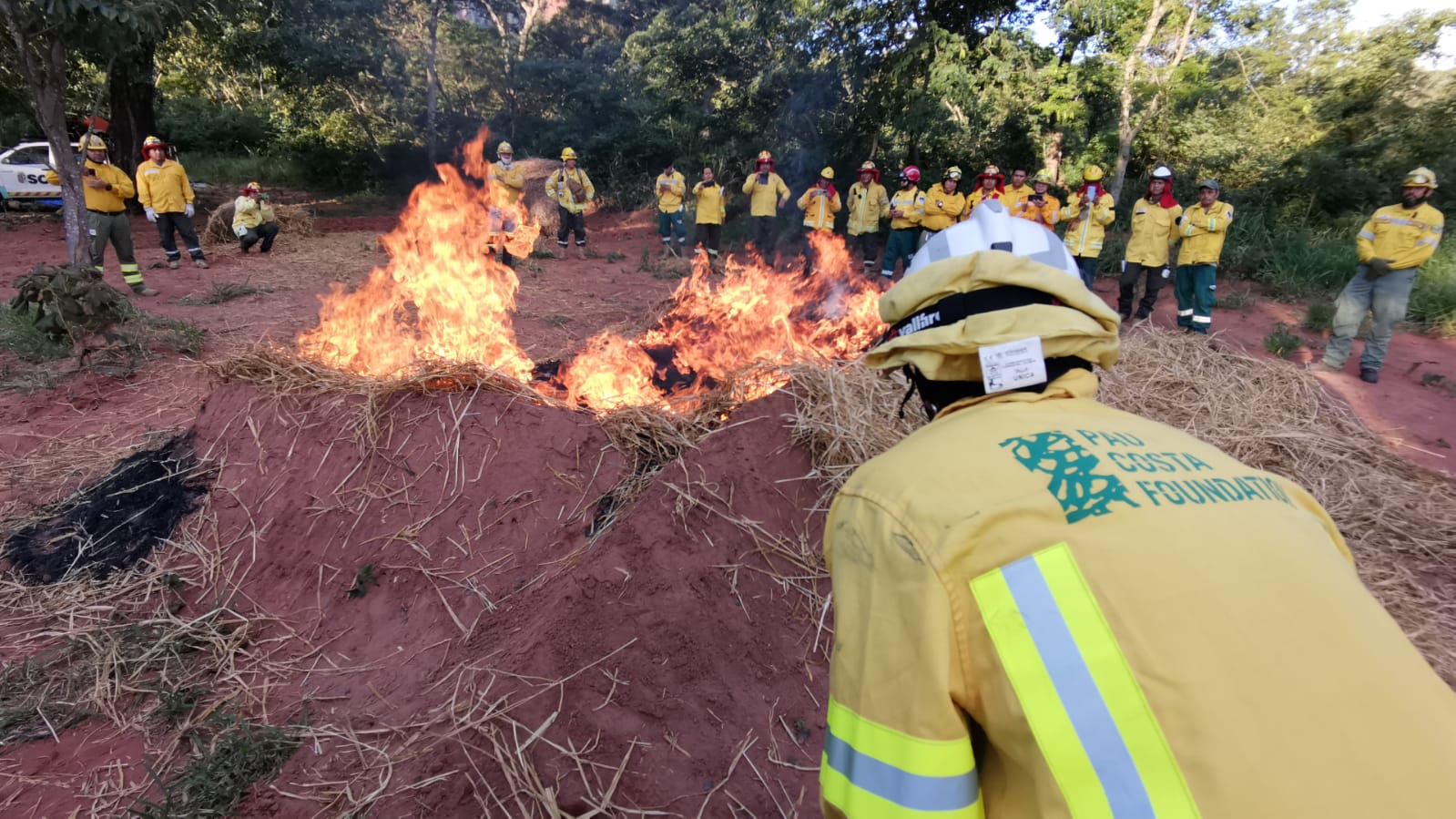
Training on Fire Management
We offered training on fire management, focusing on topics such as the implementation of a burning plan; organization of the burning; ignition patterns and fuels, typology of wildfires (engines) and CPS, as well as meteorological variables and their impact on fire behavior. We also held a prescribed burning workshop and forest firefighting training.
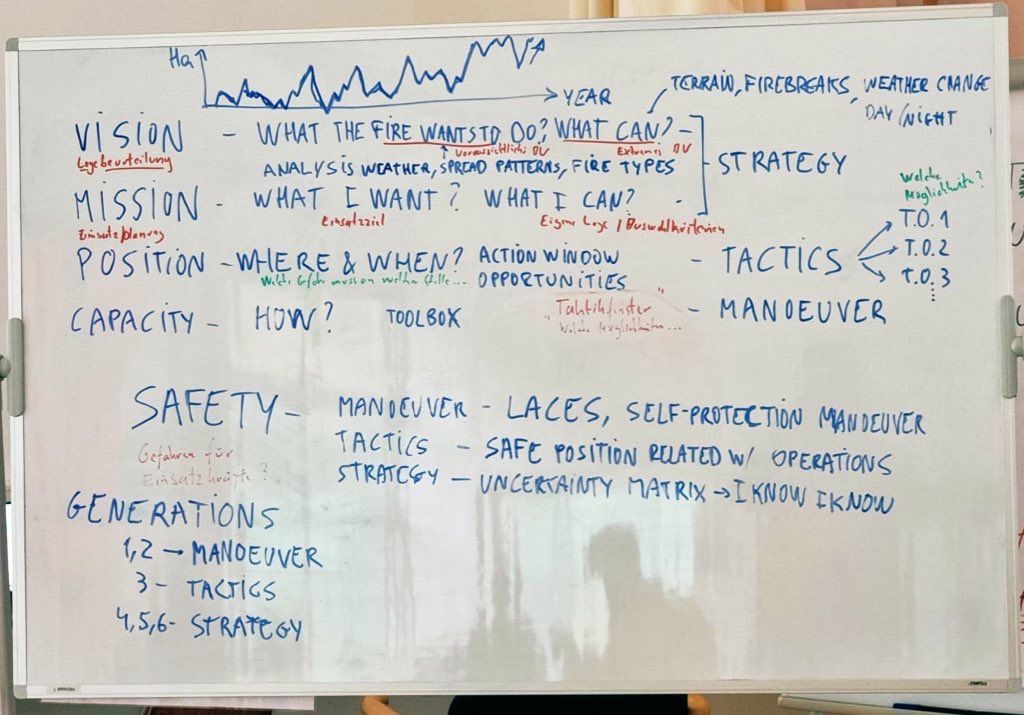
Course on Fire Analysis
Online course to introduced attendees to fire analysis, methodology and tools to use to anticipate scenarios. It featured participants from different organisations in Indonesia, from universities to emergency services.
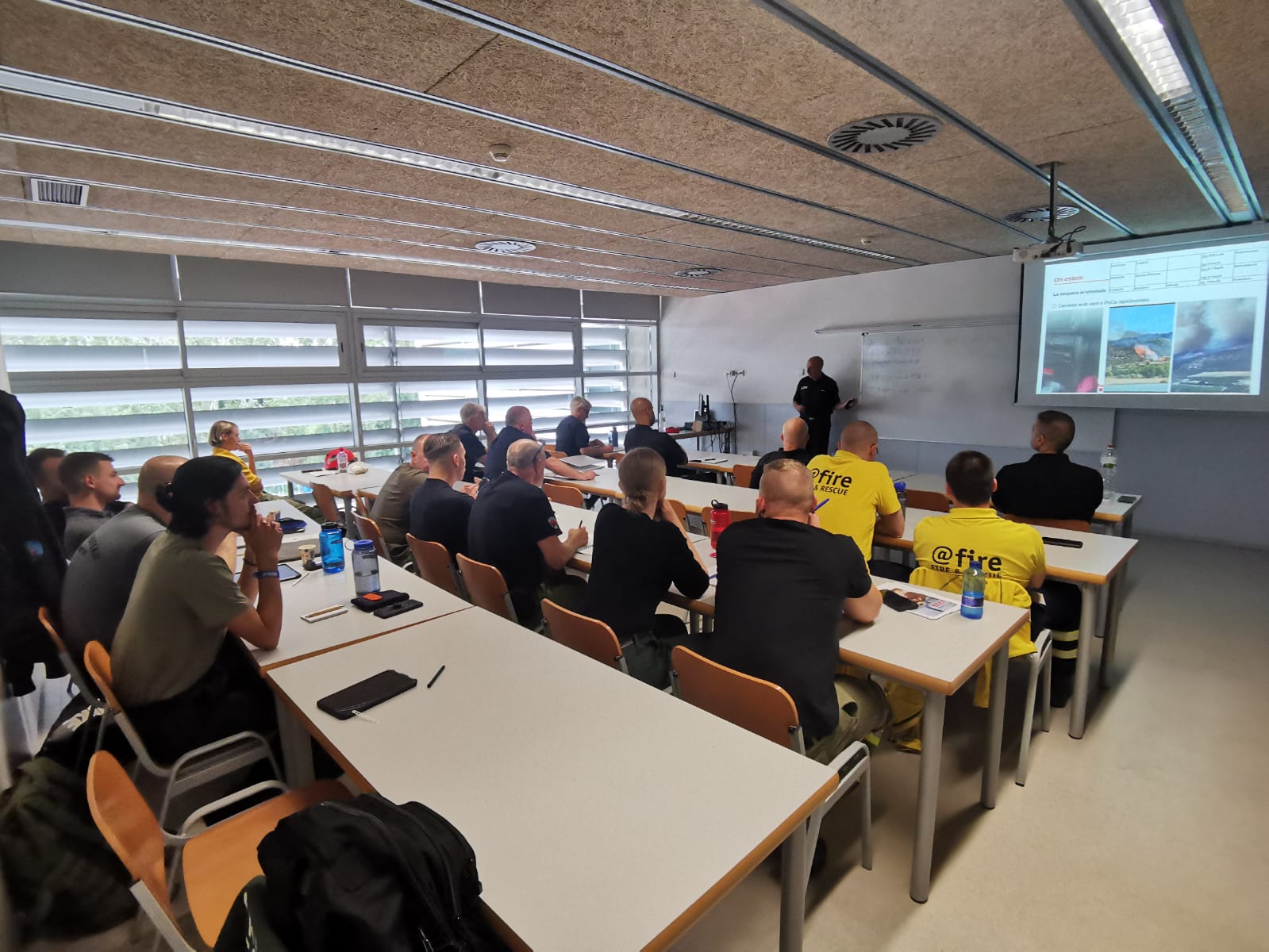
Basic Course in Technical Fire Management
Date: October 15-20, 2023
Location: Mollet del Vallès, Barcelona (Spain)
Entity: Institut de Seguretat Pública de Catalunya (ISPC) and Pau Costa Foundation (Spain)
Training aimed at consolidating basic learning to plan and execute a prescribed burn. Use of technical fire in simple fire operations; basically, definition of perimeter and widening burns to flanks and tails.

Wildfire Academy
We carry out two activities within the framework of this training for firefighters. Specifically, we showed the use of the sandbox for the analysis of fire behavior and coordination of resources, and we coordinated direct attack exercises with fire swatters.
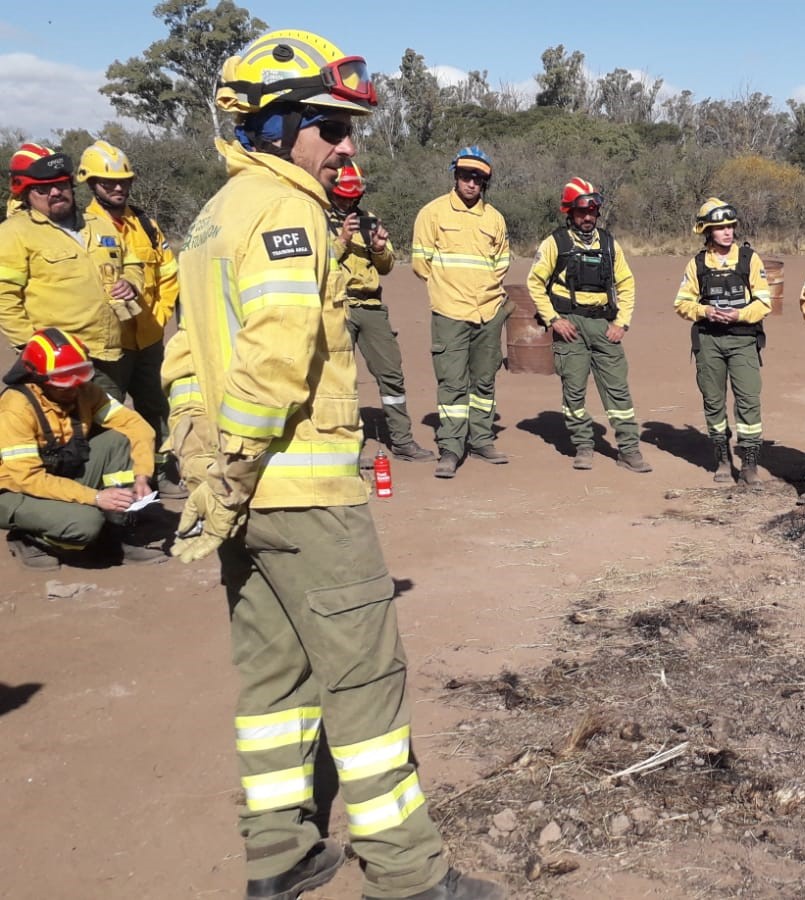
Training on Wildfires
Date: September-November, 2023 13
Location: Córdoba, Argentina
We provided online and in-person training to middle and senior managers of the Fire, Communications and Emergency (ICE) departments of APN Argentina. The training focused on acquiring, strengthening and reviewing the theoretical-technical knowledge necessary for the good performance of functions in the different work positions, and in training the skills, abilities and aptitudes necessary to execute a pre-established function, in simulated scenarios.
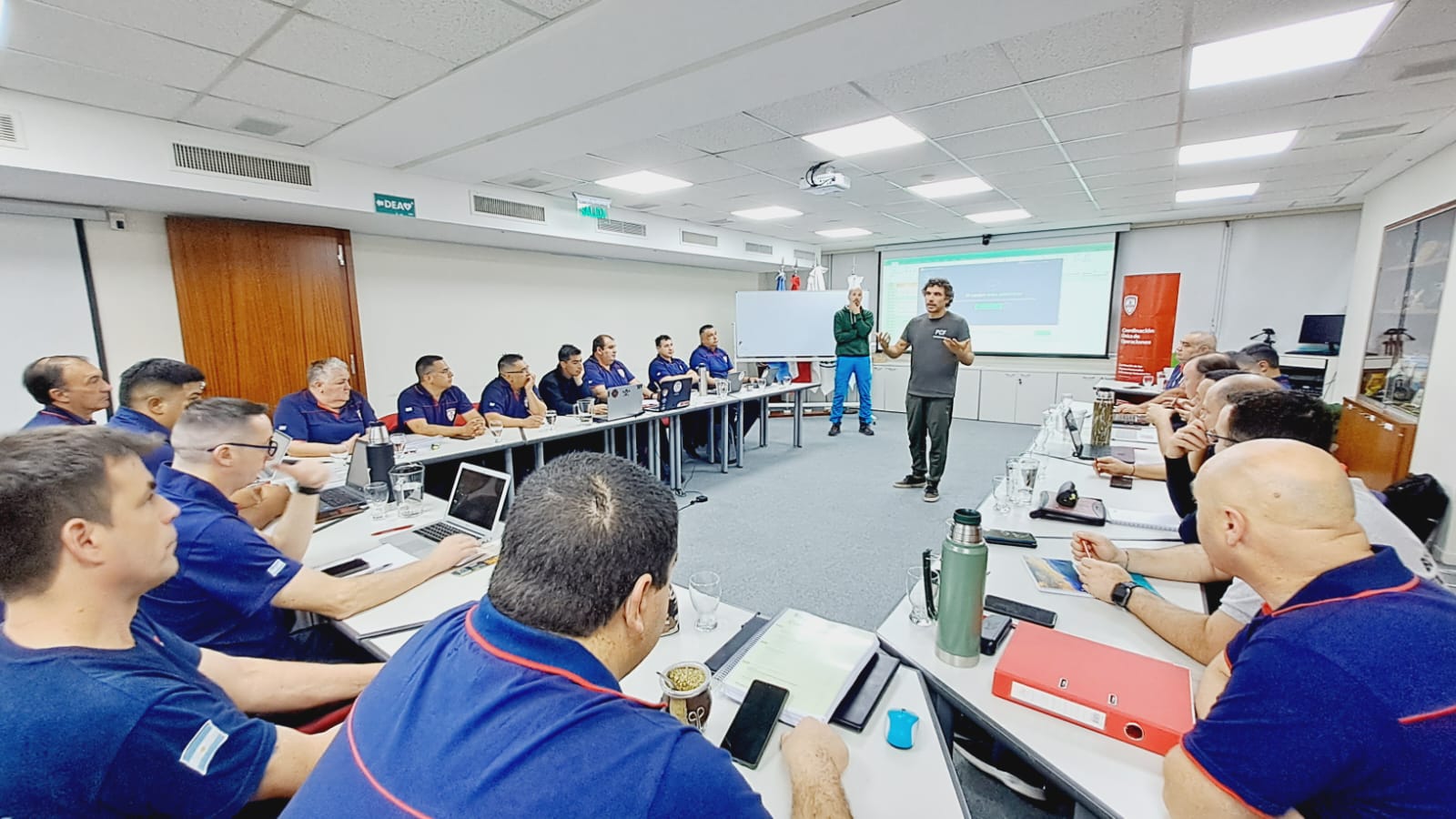
Incident Command System Course
Date: September 1-3 (first edition) and September 8-10, 2023
Location: Buenos Aires, Argentina
Entity: Academia Nacional de Bomberos Voluntarios (ANB) de Argentina
We participated as instructors in this course aimed at achieving good organization of the management of major emergencies, allowing good use of resources and good integration of the different agencies that intervene in any type of incident or emergency. The course prepared emergency management professionals to operate efficiently during a forest fire according to the Incident Command System.

Workshop: Introduction to Wildland Fire Response Operation
Date: October 23, 2023
Location: Brussels, Belgium
Entity: European Civil Protection and Humanitarian Aid Operations (DG ECHO)
Workshop facilitated within the framework of the “Youth in Civil Protection & Disaster Risk Management” programme in which we proposed an introduction to the behaviour of wildfires, suppression and containment approaches, use of sandbox for the simulation of wildfires, and planning of wildfire response operations.
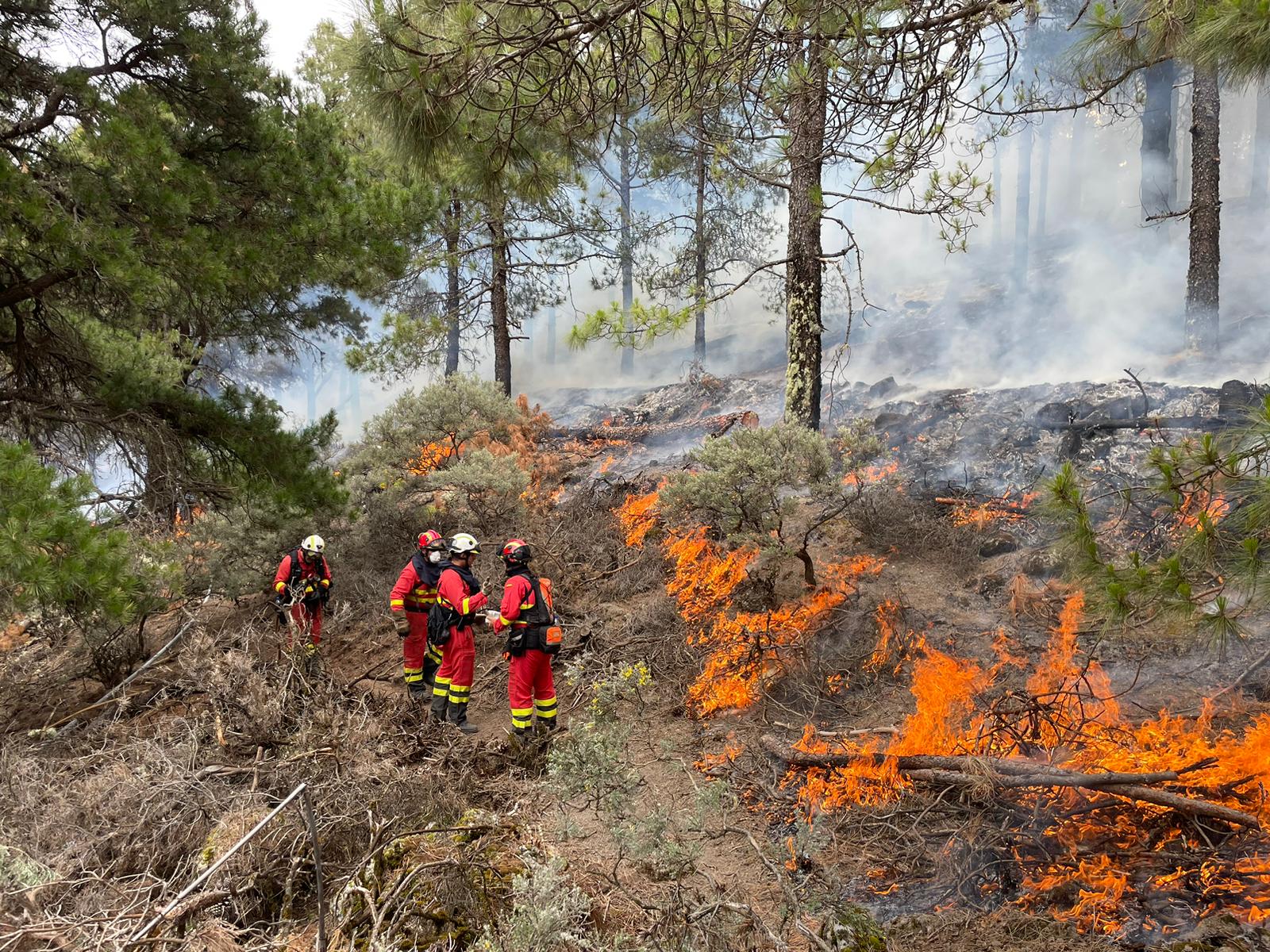
Basic Course in Technical Fire Management
Date: October 22-28, 2023
Location: Gran Canaria, Spain
Entity: Pau Costa Foundation
The objective of this training was to show the use of fire as a means of forest management and a tool in preventive and suppression tasks in wildfire operations. The participants acquired knowledge and skills to integrate into a unit specialized in prescribed burns.
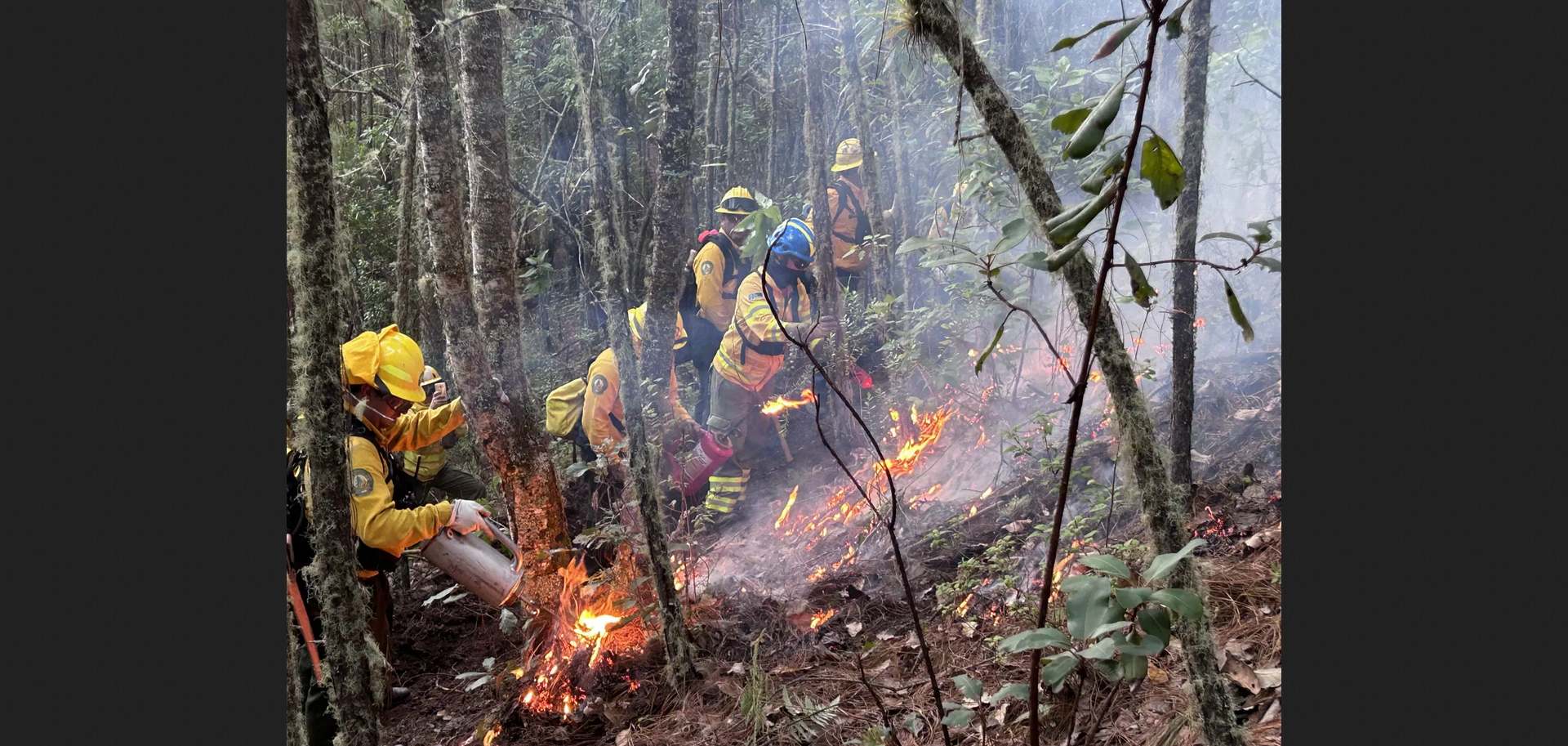
TREX México
The training and operations team participated in this TREX within the framework of the FIRE-ADAPT project. The objective was to strengthen the technical capabilities of the participants in the use of prescribed fire under the organizational structure of the Incident Command System, establish plots for the evaluation of the effects of burning on the ecosystem, the publication of the results in scientific journals, and the dissemination of the good use of fire in forest areas.
